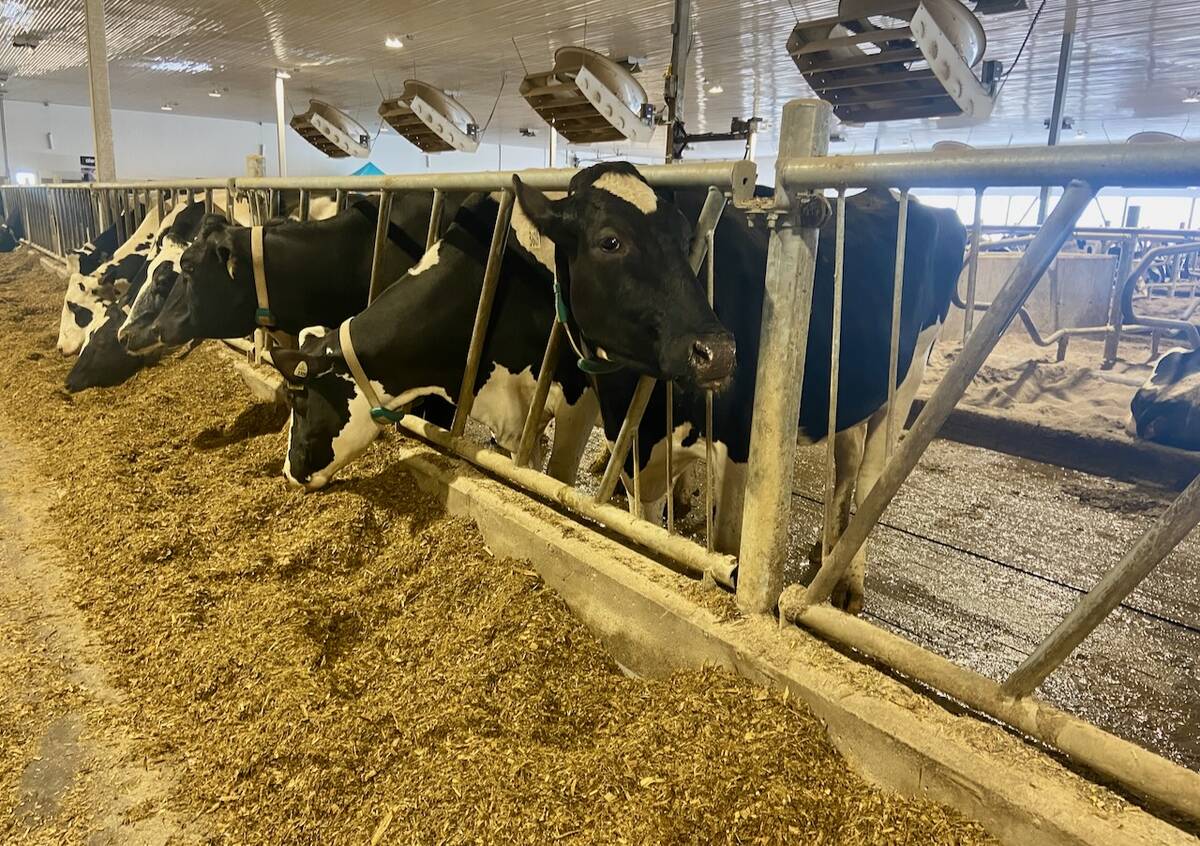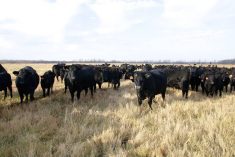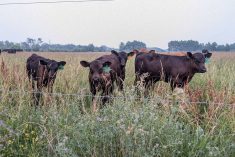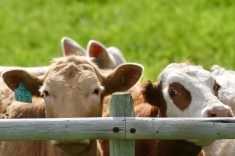BUCK LAKE, Alta. – Contented mares graze peacefully on spring grass while gangly newborn colts bound about. A small creek meanders nearby and dogs stretch out lazily in the sunshine. It’s anything but the highly charged, angst-filled atmosphere some would expect here.
And it’s not the sight many animal rights activists are interested in seeing, say horse ranchers Danny and Dorothy Willows of Buck Lake. For the Willows, who make part of their living collecting pregnant mare’s urine, it’s a picture they wish more people could see.
Read Also

U.S. farm group supports supply management
U.S. grassroots farm advocacy group pushing new agriculture legislation that would move towards supply management like Canada has for dairy industry
According to the couple, the PMU industry is shrouded with misconceptions and tales of abuse and insensitivity to the horses’ needs. It’s also a small industry easily targeted by animal rights groups who don’t want to see animals used by humans for food, recreation or clothing, said Dorothy.
“The big myth is that we slaughter all the colts,” said Danny Willows, president of the Wild Rose Equine Ranchers’ Association in Alberta.
“The colts are not a byproduct of the industry. Everybody I know strives to get better mares and raise better colts and better stallions.”
He said he believes there will always be a market for horses and the PMU business fills that need beyond the demand for horse meat in Europe or Asia.
Located in west-central Alberta about 140 kilometres southwest of Edmonton, the Willows Ranch is one of more than 400 PMU farms in Western Canada.
A recent name change for Alberta producers to the Wild Rose Equine Rancher’s Association will hopefully deter opponents and present a more positive image of people who raise horses, said Willows.
But James Pearson, co-ordinator for the animal rights group People Acting for Animal Liberation, doubts the move will have any effect.
In fact, he said the name change implies the PMU industry has something to hide. And he said no matter how many other markets producers find for the colts, most are still sent directly to slaughter plants and are therefore a byproduct of the PMU industry.
Following charges by animal rights groups that mares and colts on many PMU farms are mistreated, a tour set up by the Canadian Foundation for Animal Care, veterinarians and equine specialists inspected a number of farms in Alberta, Saskatchewan and Manitoba. The Willows Ranch was included in the tour.
Can’t alter reality
“You can’t change the appearance of my barn in a day or a week. You can’t change the appearance of my horses in a month. If my horses are not in good condition, giving me a month’s notice is not going to pick them up,” Willows said.
The Willows family say for them raising horses is an act of love. The farm is open to visitors and they willingly show how the horses live.
But Pearson said farms like the Willows are not universal in the industry.
“I would say a farm like that is nothing more than a show farm,” he said from Winnipeg. He added he knows of many more farms where mares are confined in tiny stalls, given little exercise, improper health care and feed.
Already regulated with strict penalties for those who commit infractions, the current code of practice for PMU ranches is being revised. It governs feeding, watering, stall space, health care, grooming, exercise and lighting in barns.
The Willows started in the business 11 years ago with 50 mares. Today they own 140 mares.
Mares breed in summer and foal in the spring. Estrogen collection starts after they are four months in foal. Horses are turned out of the barn for the last two months of pregnancy.
“You have to like horses to do it. It’s a good income, but not quite as good as everybody thinks it is,” he said.
The mares range from three to 23 years old. Every animal has a name and according to the Willows, her own personality. They own Quarter horses, Belgians and Percherons and some grade mares.
Urine is collected on a contract basis with Ayerst Organics of Brandon, Man., from October to March, where it is pro-cessed to relieve menopause and osteoporosis symptoms.
The Willows Ranch contract is for about 36,000 litres and they are paid for the amount of estrogen produced.
Advice and information about new methods, as well as a monthly spot check by an Ayerst fieldworker, ensure codes of practice are followed. Violators could lose their contract, said Willows.
While Pearson welcomes improvements, he said the danger to women who use the product, damage to the environment from dumping of urine and shipping foals to slaughter are problems inherent in the industry that will never go away.















